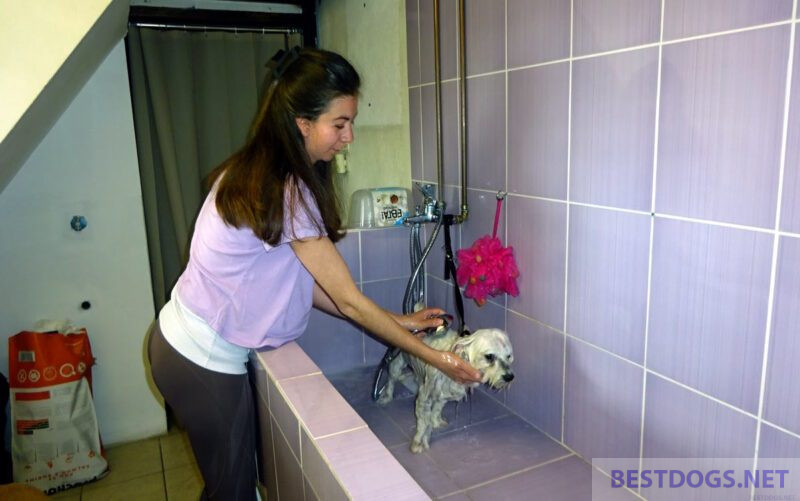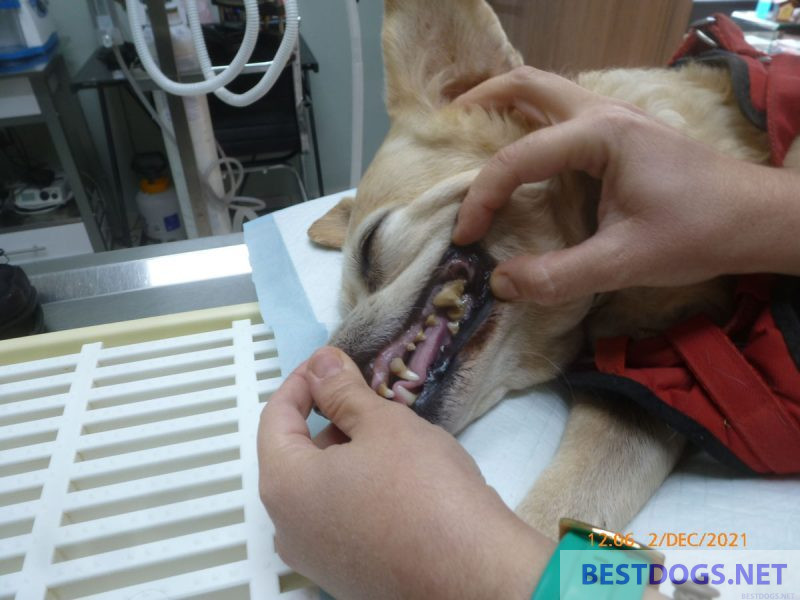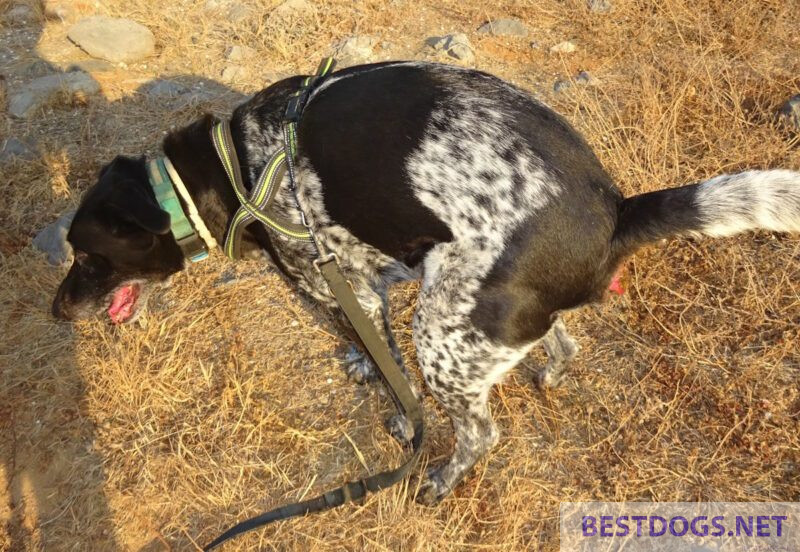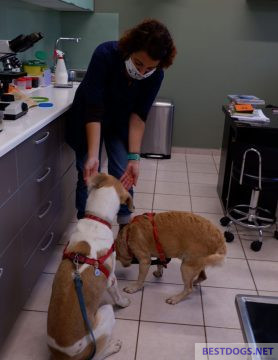Dog Health: Essential Tips for Your Canine’s Well-being

More about dog health:
Dog Health: Essential Tips for Your Canine’s Well-being
Table of Contents
Maintaining the health of a canine companion goes beyond the provision of food and water. It encompasses a holistic approach that ensures both the physical and emotional well-being of the dog.
Responsible pet owners recognize that a healthy dog is more than just an absence of illness; it’s a vibrant, energetic animal that enjoys life to the fullest.
Comprehending the multifaceted nature of dog health is paramount for those looking to foster a rewarding companionship with their pet.
A happy dog is often a healthy dog, and achieving this balance requires attention to several key aspects of their lifestyle.
Dogs thrive on consistent routines that include regular exercise, proper nutrition, and preventative healthcare measures.
It’s crucial for pet owners to be attuned to their dog’s needs and behaviors, as these can be indicative of their overall health.
The companionship offered by dogs is known to have numerous benefits for humans, but the reciprocal is equally important.
The care provided by pet owners directly impacts their dog’s happiness and health.
Therefore, a nuanced understanding of dog care practices is essential for creating a nurturing environment where dogs can live a fulfilled life alongside their human counterparts.
Fundamentals of Canine Health
Ensuring your dog’s health and happiness involves a dedicated approach to their diet, exercise, and preventive care.
This section focuses on these three fundamental areas to help maintain the well-being of your canine companion.
Nutrition and Diet
A balanced diet is critical to a dog’s overall health. This includes appropriate proportions of protein, carbohydrates, fats, vitamins, and minerals.
Dogs have specific nutritional requirements that should be met through a combination of:
- High-quality dog food that is suitable for the dog’s age, breed, and activity level.
- Healthy treats in moderation to avoid obesity.
Feeding routines should be consistent, providing meals at the same times each day to promote good digestion and establish a reliable routine.
Exercise and Physical Activity

Regular exercise is essential for maintaining a healthy weight and preventing health problems such as obesity and joint issues.
Physical activity should be tailored to the dog’s breed and energy level, generally including:
- Daily walks or runs.
- Playtime, which can involve games like fetch or agility training.
Preventive Veterinary Care
Routine check-ups with a veterinarian play a vital role in catching and addressing health issues early.
Preventive care typically involves:
- Vaccinations and booster shots to protect against diseases.
- Regular screenings for parasites and prompt treatment if necessary.
Taking these preventive measures can help avoid common health problems and contribute to a longer, healthier life for your dog.
Behavior and Mental Well-being
Maintaining a dog’s behavior and mental well-being is essential for their overall happiness and health.
Dogs thrive on regular exercise and mental stimulation; a lack of these can lead to issues such as anxiety and behavioral problems.
Training and Socialization
Training provides the foundation for good behavior in dogs.
It’s vital for dogs to learn commands and understand boundaries from an early age.
Consistency in training methods helps dogs feel secure in knowing what’s expected of them.
Furthermore, socialization is crucial in developing well-rounded and confident dogs.
Exposing them to different people, dogs, and environments reduces fear and prevents anxiety.
Mental Stimulation and Toys
Just as important as physical stimulation, mental engagement keeps a dog’s mind sharp.
It can be achieved through various activities and toys, providing outlets for natural canine behaviors.
Interactive toys challenge their problem-solving skills and can satisfy their instinctual urges to hunt and forage.
Moreover, implementing interactive games during playtime can significantly enhance their cognitive functions and stave off boredom.
Grooming and Hygiene

Maintaining proper grooming and hygiene is crucial for a dog’s overall health. Regular care prevents common problems and ensures that the dog remains comfortable and clean.
Skin and Coat Care
A dog’s skin and coat are the first line of defense against environmental elements.
Bathing your dog too frequently can strip away natural oils and lead to skin irritation, so it’s important to find the right balance.
Dog owners should use a gentle, dog-specific shampoo and make sure to brush their companion’s coat regularly to remove dirt, debris, and loose hair.
This not only keeps the coat shiny and healthy but also allows for early detection of any skin issues.
In addition to grooming, maintaining proper hygiene is also important. This includes regular nail trimming, ear cleaning, and dental care. Neglecting these aspects of hygiene can lead to discomfort, infections, and other health issues.
Nail trimming is an essential part of dog grooming as long nails can cause pain and discomfort for your furry friend. Overgrown nails can also lead to difficulty in walking and can even cause joint issues. Regular nail trims, ideally every 2-4 weeks, help to keep your dog’s nails at a healthy length.
Ear cleaning is another important aspect of maintaining good hygiene for your dog. Dogs with floppy ears or those that spend a lot of time outdoors are more prone to ear infections. Cleaning your dog’s ears regularly, using a gentle ear cleaning solution and cotton balls, helps to prevent the buildup of wax and debris that can lead to infections.
Dental Health

When it comes to dental health, regular brushing with a toothbrush and dog-safe toothpaste can significantly reduce the risk of dental diseases.
Dog owners should aim to establish an oral hygiene routine that includes inspecting the dog’s teeth and gums and performing dental care for dogs at home to prevent the buildup of plaque and tartar, which can lead to more serious oral hygiene issues.
Regular professional cleanings by a veterinarian may also be necessary to maintain optimal dental hygiene.
Dealing with Common Health Concerns
As canines age and interact with their environment, they are prone to a range of health concerns.
Effective management involves preventive measures and an astute awareness of symptoms that indicate underlying health problems.
Parasite Prevention
Ticks and fleas are common ectoparasites that can affect a dog’s well-being.
Consistent use of preventatives can shield dogs from the discomfort and potential diseases these parasites carry.
It is crucial to administer year-round preventive treatments that can protect against fleas, ticks, and heartworm.
Products come in various forms such as topical solutions, oral medications, and collars.
For internal parasites like heartworm, which are transmitted by mosquito bites, preventive medication is vital.
Heartworm can lead to severe heart and lung damage and even death, making regular heartworm preventatives key to maintaining good canine health.
- Preventive Measures:
- Monthly flea and tick prevention
- Year-round heartworm medication
- Regular environmental cleaning to eliminate pests
Recognizing Signs of Illness

Early detection of illness in dogs often hinges on the owner’s ability to recognize subtle changes in behavior or appearance.
Signs such as diarrhea, matting, or bald spots can indicate health issues ranging from minor to serious.
Gastrointestinal upsets, reflected in symptoms like diarrhea, can stem from simple dietary indiscretion but might also signal parvovirus, a highly contagious virus especially dangerous to puppies.
- Key Signs of Canine Illness:
- Changes in appetite or water consumption
- Alterations in behavior or activity level
- Expressions of discomfort or pain
- Evidence of external parasites or skin problems
Vaccinations play a critical role in preventive care, safeguarding against diseases like distemper, parvo, rabies, and leptospirosis.
Moreover, routine veterinary check-ups allow for vaccinations to be kept up-to-date and for health issues to be addressed promptly.
- Vaccination and Veterinary Care:
- Annual wellness exams
- Up-to-date vaccination records
These could include blood work, urinalysis, or imaging studies to evaluate the internal organs and detect any underlying conditions that may not be apparent during the physical examination alone. By conducting these tests, the veterinarian can gain a better understanding of your dog’s overall health and identify any potential issues that may require further attention.
Establishing a good relationship with your veterinarian is crucial for ensuring the best care for your dog. By regularly visiting the same veterinarian, they can become familiar with your dog’s medical history and track any changes or trends in their health. This familiarity allows the veterinarian to provide personalized recommendations and tailored treatment plans to address your dog’s specific needs.
During these check-ups, your veterinarian will also discuss preventive care measures, such as vaccinations, parasite prevention, and dental care. Vaccinations are crucial for protecting your dog against common and potentially life-threatening diseases. Your veterinarian will recommend a vaccination schedule based on your dog’s age, lifestyle, and risk factors. Following this schedule will help ensure that your dog is adequately protected.
Parasite prevention is another important aspect of preventive care. Fleas, ticks, and intestinal parasites can cause a range of health problems for your dog, including skin irritation, anemia, and even the transmission of certain diseases. Your veterinarian will recommend appropriate preventive medications and provide guidance on how to administer them properly.
Owners should be particularly vigilant about respiratory illnesses in dogs, such as kennel cough, which can be contracted in social settings like dog parks or boarding facilities.
Maintaining vaccination and overseeing your dog’s interactions with other canines can minimize such risks.

Frequently Asked Questions
Proper care and informed decisions are crucial to a dog’s well-being. This section answers common questions aimed at helping owners maintain their canine’s health.
What diet is recommended for optimal canine health?
A balanced diet tailored to the dog’s age, size, and activity level, which often includes a mix of proteins, carbohydrates, fats, vitamins, and minerals, is vital for health.
For specific dietary needs, one should consider advice from resources like the American Kennel Club.
What is the ideal exercise routine for maintaining a dog’s fitness?
Daily exercise appropriate for the dog’s breed and energy level is essential. Activities can range from walks to more vigorous exercise, as suggested by the expert recommendations on Fi’s blog.
How often should a dog be taken to the vet for check-ups?
Regular veterinary check-ups at least once a year for preventive care are crucial. More frequent visits are needed for puppies, senior dogs, or those with health conditions. Consistent vaccination updates are also essential, as noted by the AKC Canine Health Foundation.
What are some effective ways to ensure good mental health in dogs?
Mental stimulation through interactive play, training, and socialization helps prevent behavioral issues and keeps a dog’s mind sharp. The American Kennel Club offers advice on activities for mental stimulation.
How can one prevent common health issues in dogs?
Preventive measures include regular exercise, keeping up with vaccinations, parasite prevention, and giving proper nutritional support. Maintaining a healthy weight is also important, as outlined by the American Kennel Club.
What signs indicate that a dog may need immediate medical attention?
Symptoms such as excessive vomiting or diarrhea, difficulty breathing, sudden collapse, or unresponsiveness are signs a dog should be seen by a vet immediately.
For a comprehensive list of symptoms that require urgent care, owners can refer to trustworthy veterinary health sources.











